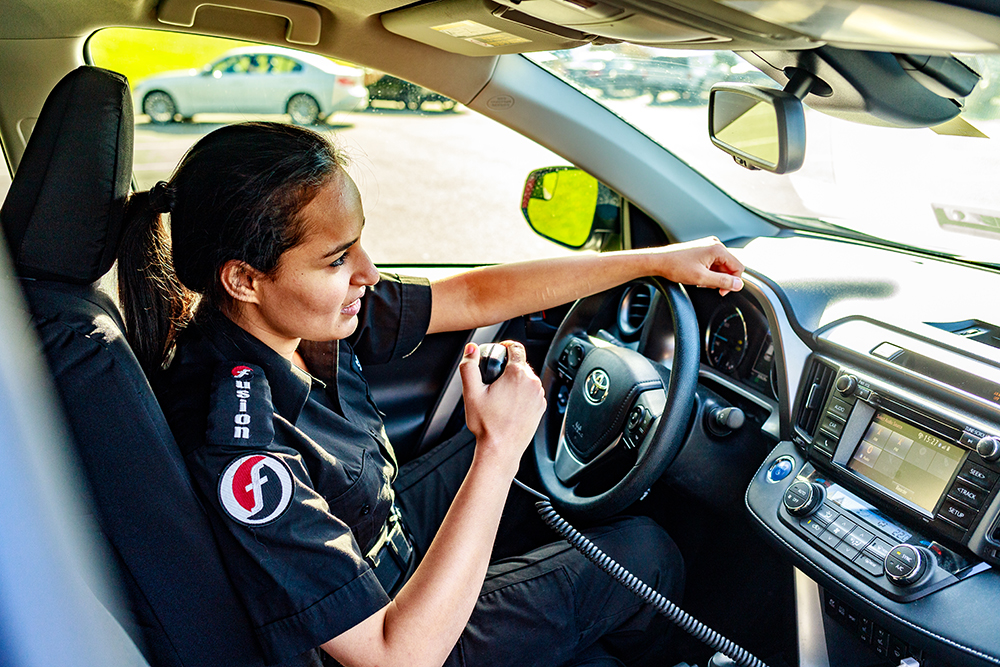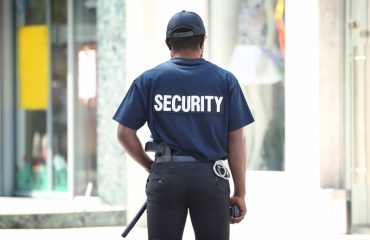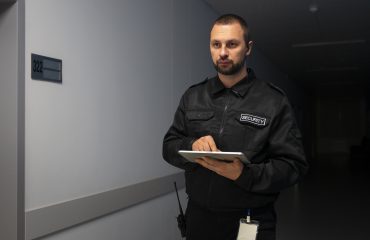In an era where technology is rapidly evolving and crime is becoming increasingly sophisticated, police mobile security has emerged as an important component of modern law enforcement. Ensuring the safety and efficiency of police officers on the move is crucial for maintaining public order and effectively responding to emergencies. In this article we will explores the various aspects of mobile security, its importance, and the technologies that are transforming this field.
Introduction to Mobile Security
Mobile petrol security refers to the measures and technologies used to protect law enforcement officers and their equipment while they are in transit. This encompasses a wide range of strategies, from vehicle armor and secure communication systems to GPS tracking and real-time data analytics. The primary goal is to ensure that officers can perform their duties safely and efficiently, regardless of their location.
Officer Safety
The safety of police officers is paramount. Mobile security systems protect officers from various threats, including assaults, ambushes, and accidents. Armored vehicles, bulletproof glass, and reinforced body panels are just a few examples of how technology can enhance physical security.
Operational Efficiency
Effective mobile petrol security allows officers to respond more quickly and efficiently to incidents. Secure communication systems ensure that officers can coordinate their actions and share critical information in real time, leading to faster and more effective responses.
Public Safety
Ensuring the security of police vehicles and equipment also protects the public. For example, preventing the theft of police firearms or sensitive information can avert potential threats to community safety.
Asset Protection
Police vehicles and the equipment they carry are valuable assets. Mobile petrol security measures help protect these assets from theft, damage, and misuse, ensuring that resources are available when needed.
Armored Vehicles
Armored police vehicles provide enhanced protection against firearms and explosives. These vehicles are essential for high-risk operations, such as responding to active shooter situations or transporting high-profile suspects.
Secure Communication Systems
Encrypted communication systems ensure that officers can securely transmit information without the risk of interception by unauthorized parties. This is crucial for maintaining the confidentiality of sensitive operations.
GPS Tracking and Telematics
GPS tracking systems enable real-time monitoring of police vehicles, allowing dispatchers to efficiently manage resources and coordinate responses. Telematics systems provide data on vehicle performance and driver behavior, which can be used to improve safety and efficiency.
Body-Worn Cameras and Dashcams
These devices provide valuable evidence for investigations and enhance transparency and accountability in law enforcement. They also serve as a deterrent to misconduct by both officers and the public.
Automatic License Plate Recognition (ALPR)
ALPR systems use cameras and software to scan and recognize vehicle license plates, enabling officers to quickly identify stolen vehicles, wanted suspects, and other persons of interest.
Mobile Data Terminals (MDTs)
MDTs provide officers with access to databases, incident reports, and other critical information while in the field. This allows for more informed decision-making and faster responses to incidents.
Comprehensive Training
Officers should receive thorough training on the use of mobile security technologies and protocols. This ensures that they can effectively use these tools to enhance their safety and performance.
Regular Maintenance and Updates
Security systems and technologies should be regularly maintained and updated to ensure they remain effective. This includes software updates, hardware inspections, and routine testing of communication systems.
Collaborative Approach
Effective mobile petrol security requires collaboration between different departments and agencies. Sharing information and resources can enhance overall security and improve the effectiveness of law enforcement operations.
Community Engagement
Building trust and cooperation with the community is essential for effective policing. Transparent communication about the measures being taken to ensure mobile petrol security can help foster public support and cooperation.
Data Privacy and Security
Ensuring the privacy and security of data collected by mobile security systems is crucial. Implementing robust data protection measures helps prevent unauthorized access and misuse of sensitive information.
Artificial Intelligence and Machine Learning
AI and machine learning can enhance the capabilities of mobile security systems by enabling predictive analytics, automated threat detection, and real-time decision-making support.
Drones and Robotics
Drones and robotic systems can be used for surveillance, reconnaissance, and even direct intervention in high-risk situations, reducing the risk to human officers.
Integrated Systems
The future of mobile security lies in the integration of various technologies into a cohesive system. This includes seamless communication between different devices, real-time data sharing, and centralized command and control centers.
Cyber security
As mobile security systems become more reliant on technology, protecting these systems from cyber threats will become increasingly important. Investing in robust cyber security measures will be essential to safeguard against hacking and data breaches.
Conclusion
Mobile petrol security is a critical aspect of modern law enforcement, ensuring that officers can perform their duties safely and efficiently while on the move. By using advanced technologies and adopting best practices, law enforcement agencies can enhance their operational capabilities, protect their officers, and better serve their communities. As technology continues to evolve, staying ahead of emerging threats and trends will be key to maintaining the effectiveness of police mobile



